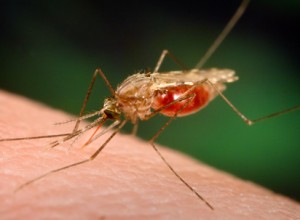Insecticide resistance standing in the way of malaria control efforts in Ghana
 The need to deal with insecticide resistance, including the indiscriminate use of mosquito coils, which are hindering malaria prevention and control efforts in the country, formed part of discussions during a meeting between journalists and officials of the Noguchi Memorial Institute for Medical Research (NMIMR) in Accra.
The need to deal with insecticide resistance, including the indiscriminate use of mosquito coils, which are hindering malaria prevention and control efforts in the country, formed part of discussions during a meeting between journalists and officials of the Noguchi Memorial Institute for Medical Research (NMIMR) in Accra.
Looking for funding to conduct clinical studies into the safety and efficacy of herbal products to ensure that such products meet internationally accepted standards, was also part of the issues that took centre stage during the meeting.
The meeting was organized by the African Media and Malaria Research Network (AMMREN) in collaboration with the NMIMR as part of this year’s World Malaria Day, which is commemorated on the 25th of April, every year.
As part of activities to mark the day, which was celebrated under the theme, “zero malaria starts with me” AMMREN, a Network of African journalists and scientists leading a malaria advocacy agenda for the past 13 years, organised a day’s trip to the NMIMR for selected journalists to enable them gather first-hand information about the work of NMIMR, with particular focus on malaria.
The occasion was also meant to offer the journalists the opportunity to interact with researchers at the Institute and to provide a platform for networking.
Addressing the journalists, Prof. Abraham Kwabena Anang, Director of NMIMR, said collective efforts were needed to tackle the malaria menace.
He said the NMIMR had a huge focus on malaria research, with four of its department directly doing a lot of work on the disease.
The Institute’s activities include epidemiological studies, parasitology, immunology and vaccine development, and clinical trials of drugs including looking into new treatment for malaria.
Dr Charity Binka, Executive Secretary of AMMREN, noted that research is needed to drive the process of finding out what is or not working in the malaria control and elimination agenda, especially in the light of the available tools being used.
She said zero tolerance for malaria begins with individuals, politicians and other stakeholders, who also need to get involved.
Dr Binka touched on the need to change the culture of not testing for malaria before treating the disease, especially by some health care providers dispensing drugs in the local communities.
Meanwhile in a related development, Ghana and Sierra Leone have declared their support for the “Zero Malaria Starts with Me” campaign to mark this year’s World Malaria Day.
The RBM Partnership to End Malaria, in a press statement, said both countries will be supported by advocacy action tank Speak Up Africa, which will be partnering with Comic Relief, GSK and the RBM Partnership help the two countries in the implementation of the campaign and helping protect more citizens from the deadly disease.
It said “malaria impacts Africa more than anywhere else in the world with ten of the 11 highest malaria burdened-countries located on the continent. Ghana is the 7th highest malaria burdened country in the world, recording over 7 million cases in 2017 according to the last World Malaria Report. Sierra Leone recorded 3 million in the same year and cases in both countries are on the rise,” the statement said.
Both Ghana and Sierra Leone will be reigniting a national, society-wide movement towards malaria elimination, promoting private sector and community engagement strategies, tailored to meet the challenges each country faces.
It said Ghana will launch new initiatives to engage parliamentarians through workshops and visits and ensure efficient use of local domestic funding. Showcasing how private sector investment in malaria control can improve cost effectiveness for companies will also be leveraged to engage private sector engagement.
The initial Zero Malaria Starts with Me campaign launched in Senegal in 2014, with the support of Speak Up Africa and PATH, successfully engaged key stakeholders and encouraged grassroots action on malaria.
The African Union, in partnership with the RBM Partnership to End Malaria, launched “Zero Malaria Starts with Me” across Africa in 2018 following the success in Senegal. Several countries including Zambia, Niger and Mozambique have implemented the campaign on a national level.
“Zero Malaria Starts with Me” is also the official global theme for World Malaria Day 2019, designed to remind people across the world that they have the power and personal responsibility to take actions that will protect families and communities from malaria and the importance of holding governments to account.
By Eunice Menka
